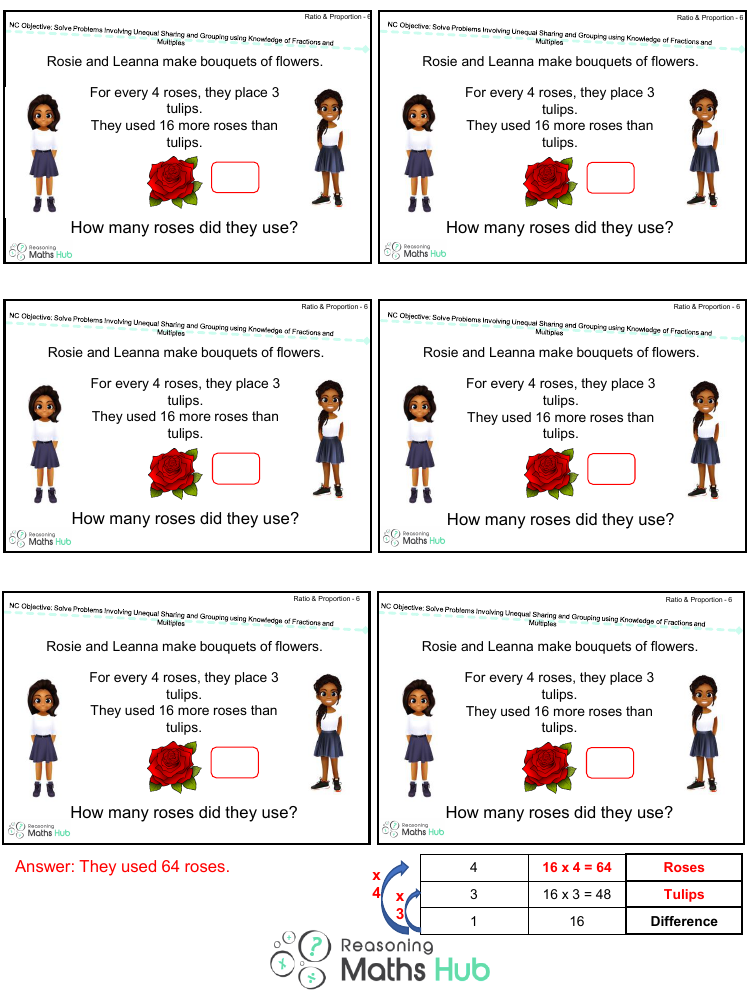Solve Problems Involving Unequal Sharing and Grouping Using Knowledge of Fractions and Multiples 4 - Reasoning

Maths Resource Description
Rosie and Leanna have been creating beautiful bouquets of flowers, carefully arranging roses and tulips according to a specific ratio. For every four roses they use, they add three tulips to maintain the aesthetic balance of the bouquet. However, they've encountered a bit of a mathematical puzzle: they've ended up using 16 more roses than tulips. To solve this problem, we need to apply our understanding of ratios and simple arithmetic.
By setting up the ratio of roses to tulips as 4:3, we can express the difference between the number of roses and tulips used as 'x', where 'x' represents the number of times the ratio has been used. According to the given information, 4x - 3x equals 16, as there are 16 more roses than tulips. Simplifying this, we find that 'x' equals 16. Therefore, the total number of roses used is 4 multiplied by 16, which gives us a total of 64 roses. Meanwhile, the number of tulips can be calculated as 3 multiplied by 16, resulting in 48 tulips. This problem-solving exercise demonstrates the practical application of fractions, multiples, and ratios in everyday situations such as floral arrangement.